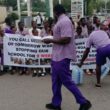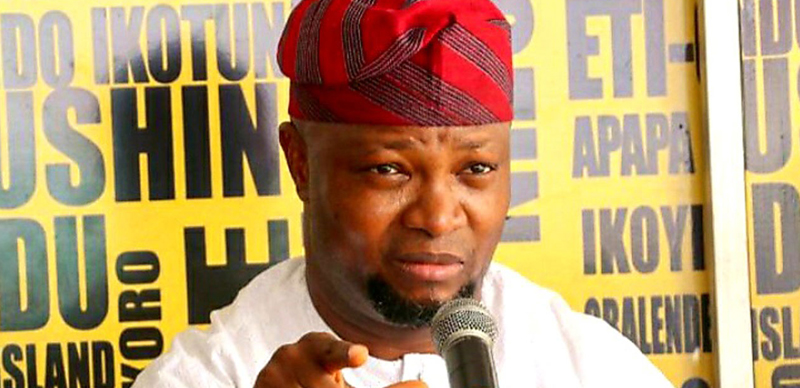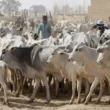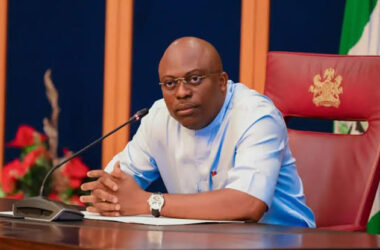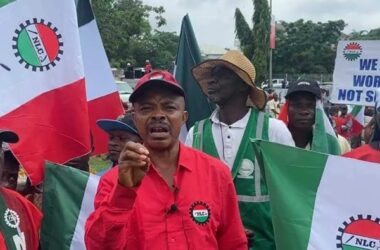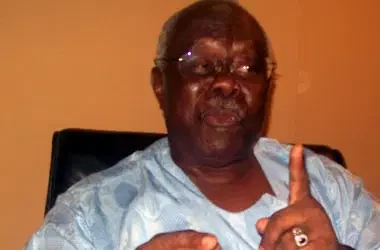Former Lagos State governorship candidate of the Peoples Democratic Party (PDP), Mr. Olajide Adediran, popularly known as Jandor, has disclosed details of a failed peace move by PDP gubernatorial candidates to resolve the bitter rift between former Vice President Atiku Abubakar and then-Rivers State Governor Nyesom Wike ahead of the 2023 elections.
Speaking on Inside Sources with Laolu Akande on Channels Television, Jandor narrated how PDP governorship candidates, concerned about the fallout from the Atiku-Wike feud, decided to intervene before the crisis could damage their own electoral prospects.
“During that brouhaha, we governorship candidates at that time, met. We said ‘Look, these guys are fighting. They will crash on us. Let’s meet to two gladiators which are Governor Wike as at that time and Atiku.’ We went to Atiku and said we are going to Port Harcourt. We left for Port Harcourt and we engaged Governor Wike . he said everything. And the only thing he requested was that Ayu [the then PDP National Chairman] should resign. We left that meeting. On the plane I spoke with Atiku. I asked: ‘What will it change if Ayu step aside? Will it affect anything?’ he said ‘Jandor, I don’t have any problem whatsoever with Ayu resigning. But, should I be the one to tell him? Won’t I appear selfish?” that was his response.
“I called Ashiru [PDP guber candidate] of Kaduna, and others, I said meet General Gussau, meet Babangida, meet these people, and let them speak to Ayu to resign. This is what the principal just told me. But, before they landed in Abuja, Gov Wike had held a press conference abusing all of them and their father. So, they didn’t bother to do anything.,” he noted further.
Jandor shared his candid reflections on internal party politics, electoral reform, and the entrenched system of political control that cuts across Nigeria’s political spectrum.
“You see, if you followed what we did in Lagos, you know, it was actually centered on this topic that you mentioned. And, of course, we’re very much aware that all political parties in Nigeria do have what you call, whether you want to call it ‘baba sope’, the supreme leader, I mean, every political party,” Jandor began.
“I mean, if you mention NNPP, APC, PDP, even Labour Party, everybody, if the man who is seen as the alpha of the party decides what, I mean, I don’t think anybody would say otherwise. Actually, we were actually aware of that. But more importantly for us, we needed a platform to express our can-do ability.”
Reflecting on his political journey from the All Progressives Congress (APC) to the PDP, Jandor said the move was strategic: “We were in APC at that time, and we had an incumbent on the ballot. We knew it was going to be difficult for us to see that incumbent to pick the ticket. So we needed a platform where we can express our can-do ability and which we were able to do.”
However, he was quick to note that while seeking refuge from one babasope in APC, he met another in the PDP: “We confronted another ‘babasope’ in PDP. But, you know, there’s a saying that if a woman hasn’t tried two husbands, who would know which is which?”
He continued: “Eventually we found out that the previous ‘babasope’ that we had to avoid coming to PDP, for what you care, he would do everything, even if you are not the chosen one, to win for his party. But the other one would do everything to ensure his own party doesn’t win. Even if it is his candidate, it has been his stock in trade. But the party, for whatever reasons, only God knows.”
Jandor accused some party leaders of sabotaging their own platforms: “The party not to win at all. Yes, it’s been like that since 1999. In 2021, when he joined the party. So it dawned on us after, you know, the experience. And we sat down and looked at this. You know what? It doesn’t have to be about me.”
He revealed that he considered the hopes of his followers in rethinking his next political moves: “We have a lot of followers who have actually put their hopes in the fact that if we win, I mean, they can be part of the government we want to form. But if we don’t win and the party wins, they can still be part of whatever it is.”
Jandor then stressed that the main purpose of a political party is to win elections and form governments: “I think we’d rather go back to, let me use that word, if it’s the right word to use. Because the most important thing, and I keep saying it, a political party is established just for one purpose. To be able to win an election and form the government for the betterment of the people. Anything short of that is just a child’s play.”
He added: “If you have a very beautiful manifesto, it’s no use. But even if you don’t win as an individual and your party wins, you can still contribute to the party by saying, ‘Oh, I have some ideas.’ That’s a win for you.”
Turning to systemic issues within internal party democracy, Jandor said: “We can’t actually take out political party administration completely out of Nigerian factor. People look at primary election, they’ve forgotten that before a primary election, there will be congresses here and there. And whoever controls the delegates of congresses will determine where it will go.”
He illustrated how local strongmen dominate delegate selection: “So in a situation whereby you have a leader in the local government, for instance, you know, and picked all the entire wards and the LGA. As far as that place is concerned, it’s in charge. So you only need to talk to one person if you want to be anything. So if it says to all of them, this is where we are going, and that’s where they’re going.”
Jandor lamented how poverty reinforces this dynamic: “Why I say you can’t take political party administration out of Nigerian context is because, hey, there is poverty down there. And, you know, at the sprinkle of little things, people would scramble to say, ‘Oh, I want to be with this guy… who is spending.’”
He called for serious electoral reforms: “It’s actually going to be difficult, except, and of course, we have an electoral reform that speaks to how to go about that selection choices without anybody owning anybody and all of that. So it’s entrenched. It’s been like that across political parties. Don’t let anybody come here and say one party. No, it’s everywhere. It’s just one issue.”
Jandor also pointed to the judiciary as a major obstacle to justice and reform: “It’s not just a reform. It’s a reform that will be backed by law, which will also be respected by everybody. You know, there’s something I’ve noticed in this country. It’s one thing for you to have a law. It’s another thing for the law to be executed. And again, if it’s even executed, when it gets to a stage of interpretation, you see the judiciary also doing otherwise.”
He recounted his personal experience in the courts: “I went to court now. This is what the law says. This is what I took to court. What interpretation are you giving to it?”
He concluded by referencing a key issue from his own legal challenge: “The law says for you to be a candidate of the party, you must be a member of that political party. That’s the question of the law. That you can’t be a member of a political party and then automatically be their dissident. So, if they check the register of the parties, and your name is not in the register of the parties… The seat is certified through copy. Because the law also says that every political party must submit their register, membership register, to INEC prior to an election.”


